
Dr Ben Anderson (ORCID: 0000-0003-2092-4406) is a Principal Research Scientists at BRANZ, having previously worked as a Principal Research Fellow within the Energy & Climate Change Division of Engineering and Physical Sciences at the University of Southampton.
Until November 2020 he was an EU-funded MSCA Global Fellow based at the University of Otago (2017-2019) and the University of Southampton (2019-2020).
Originally from a natural sciences background, Ben has a BSc in Biology and Computer Science (Southampton University, UK), a PhD in Computer Studies (Loughborough University, UK) and wide-ranging experience of leading high quality research projects in the commercial and academic sectors.
He is currently developing a multi-funder portfolio of research projects with a particular focus on domestic water and energy demand. Interests include ‘big’ data-driven analysis of habitual energy and water consumption; the impacts of interventions or natural socio-technical change on patterns of demand and the linkage of ‘appliance’ monitoring with traditional forms of social science data in support of socio-technical innovation.
Ben publishes, presents and tweets widely on domestic energy and water demand, changing energy-use practices and small area energy demand modelling.
Ben has provided advice and consultancy to the UK Departments for Environment & Rural Affairs, BEIS and the former Department of Energy & Climate Change, the Scottish Government, water/energy sector corporates and NGOs on patterns of domestic energy & water use.
In addition he has previously provided research consultancy to NGOs, corporate clients and governmental organisations including Ofcom, the Department of Health, the EU JRC, the UK Cabinet Office and the UK Parliament Welsh Affairs Committee on patterns and trends of ICT and media use.
You can find and re-use most of Ben’s data analysis code on the University of Soutampton’s gitlab (work stuff) service or on github (other work stuff). He also sometimes (very rarely) blogs on energy, data and reproducible analysis.
Recent updates
Early Hampshire Energy Mapping project results presented 09-2021 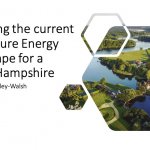
Masters student Meghan Kingsley Walsh recently presented preliminary results from her Hampshire Energy Mapping dissertation project to Hampshire County Council’s Climate Change Expert Consultative Forum. Meghan’s presentation focused on the geo-spatial distribution of energy use and it’s relationship to fuel poverty, deprivation and area level age profiles.
New blog post: Who needs flexibility anyway? 08-2021 
In a new ECCD/CREDS blog post, Ben Anderson and Tom Rushby ask ‘Who needs flexibility anyway?’ in response to ongoing research on price-driven consumer flexibility in the electricity sector.
Whose flexibility is it anyway? 08-2021 
Authors: Ben Anderson & Tom Rushby The importance of flexibility for a zero-emissions electricity system continues to drive considerable research and socio-technical innovation across CREDS and its linked activities. Inherent in much, although not all, of this work is the notion that we need to find ways to enable flexibility at the consumer end of the ...
Hampshire Energy Mapping project 06-2021 
Investigator: Dr Ben Anderson Masters student: Meghan Kingsley-Walsh Hampshire County Council declared a Climate Emergency in June 2019 and have since set two targets for the County as a whole: To be carbon neutral by 2050 To be resilient to the impacts of a 2oC temperature rise It is becoming widely recognised that decarbonising national and local energy systems will ...
ECCD research contributes to New Zealand’s Climate Change Commission consultation 03-2021 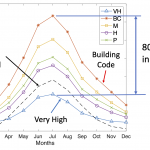
ECCD’s Dr Ben Anderson with Dr Michael Jack and Prof. Janet Stephenson from the University of Otago recently submitted a response to the New Zealand Climate Change Commission’s consultation on its first package of Advice to government. The submission focused on the results of modelling the impact of energy efficiency on space heating demand and, ...
SAVE trial design and analysis experiences feature at Energy Evaluation Europe 2021 03-2021 
Most energy evaluation studies are too small to robustly detect the reductions they are looking for. How to fix? That depends on your appetite for false positives and false negatives. On March 11th SERG’s Dr Ben Anderson presented a paper based on SERG’s experiences working on the Solent Achieving Value through Efficiency (SAVE) project at the ...
SAVE LED install trial results presented at Energy Evaluation Europe 2021 03-2021 
LED light bulb installation suppresses household evening peak electricity demand: not a lot, but you’ll like it. On March 11th SERG’s Dr Ben Anderson presented a summary of the Solent Achieving Value through Efficiency (SAVE) project’s LED installation trials at the (virtual) Energy Evaluation Europe: 2021 Conference. The conference, which was spread over 4 mornings to ...
SERL: Understanding habitual energy consumption 01-2021 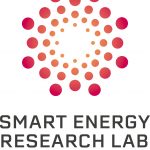
Investigators: Dr Ben Anderson (@dataknut), Prof Abubakr Bahaj Researchers: Dr Tom Rushby ECCD are conducting a new research project on habitual energy consumption as part of the Smart Energy Research Laboratory. Most research to date, including ECCD’s previous ESRC-funded Census2022 project, has analysed the shape of daily (24 hour) demand profiles and sought to understand which kinds of ...
Dr Ben Anderson invited to join Hampshire County Council’s Expert Stakeholder Forum 12-2020 
Following participation in Hampshire County Council’s Climate Change Expert Consultative Forum in August 2020, ECCD’s Dr Anderson has been invited to join the Council’s follow-on Expert Stakeholder Forum. The forum held it’s first (virtual) meeting on 8th December 2020 to review and comment on the Council’s current overall strategy and Action Plan as agreed at ...
ECCD research highlights value of energy efficient retrofit for New Zealand’s net-zero ambitions 11-2020 
Dr Michael Jack and Anthony Mirfin from the University of Otago and ECCD’s Dr Ben Anderson have developed a model which suggests that building and retrofitting New Zealand’s homes to the highest currently commercial viable energy efficiency level (PassivHaus) would reduce winter heat demand by up to 80% in peak winter months. Since future space ...
Call for papers: Special Issue ‘Big’ and Linked Data in Energy and Water Demand Research 10-2020 
ECCD’s Dr Ben Anderson, Dr Tom Rushby, Professor Patrick James and Professor ‘Bakr Bahaj are editing a special issue of Energies (ISSN 1996-1073) entitled: “‘Big’ and Linked Data in Energy and Water Demand Research: Current Practices, Novel Insights and Future Agendas” Deadline for manuscript submissions: 25 February 2021. The issue, which belongs to the section “Energy and Environment” ...
ECCD responds to Energy Networks Association ‘flexibility’ consultation 10-2020
Dr Ben Anderson and Dr Tom Rushby recently responded to the Energy Networks Association’s consultation on ‘flexibility’. In a a short paper summarising relevant ECCD and colleagues’ research to date they concentrated on the following questions: New DSO Services–2020 Product 5 Q6 At what point do you believe it is appropriate to standardise new products? For example, should ...
Latest SERL household smart energy data available via the UKDS Secure Lab 08-2020 
The Smart Energy Research Lab (SERL) in which we are a partner has released two initial datasets to the UK Dataservice for re-use in their Secure data Lab: “Smart Energy Research Lab Exploratory Data, 2019-2020: Secure Access” – (Study Number 8643) “Smart Energy Research Lab Observatory Data, 2019-2020: Secure Access” (Study Number 8666) Both datasets comprise half-hourly smart meter ...
Ensuring statistics have power 06-2020 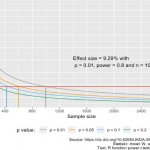
Convincing stakeholders to invest in high-quality, statistically robust research has not been an easy task. A further challenge is presented in communicating research findings and how they can be interpreted as actionable evidence. Through a recent project, SERG researchers developed guidance for both creators and users on the design, assessment and interpretation of applied energy research.
Modelling suggests LED uptake could knock 9% off New Zealand’s winter evening peak demand 05-2020 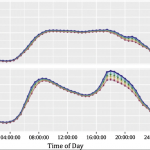
Work by Dr Ben Anderson and colleagues at the University of Otago suggests that future energy-efficient lighting uptake in New Zealand could reduce total annual demand by 1 TWh and reduce the highest winter evening peaks (at 17:00) by at least 500 MW (9%). The winter evening demand reduction would be roughly equivalent to avoiding the need for ...
Peak residential demand analysis for New Zealand offers insights to EECA 12-2019 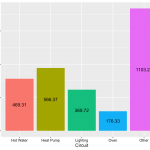
Analysis of New Zealand GREENGrid household electricity demand data conducted by Dr Ben Anderson and colleagues at the University of Otago as part of Ben’s MSCA Global Fellowship have provided unique insights into the compnents of peak residential electricity demand in New Zealand. The analysis, which was also supported by the New Zealand Energy Efficiency and ...
Analysis of New Zealand electric vehicle charging patterns contributes to major report 12-2019 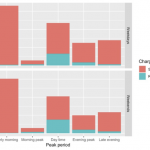
Dr Ben Anderson’s work analyzing the charging patterns of a sample of electric vehicles monitored by FlipTheFleet in New Zealand has contributed to a major new report to the New Zealand Parliamentary Commissioner for the Environment (PCE). The report, which covers a wide range of analyses from a range of contributors incorporated Ben’s analysis, conducted jointly ...
SERL consortium invites households to share their energy data 12-2019 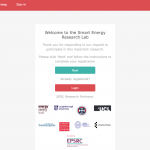
The Smart Energy Research Lab (SERL) is a major UK research project that aims to utilise household energy consumption data available via smart meters to fuel a new wave of innovative energy research. The SERL project team have been working with Ipsos MORI to develop a pilot phase of participant recruitment which was conducted from ...
SERG submits response to Ofgem 2019 code review 12-2019 
SERG’s Dr Ben Anderson has just submitted a response to Ofgem’s (2019) Access and Forward-Looking Charges Significant Code Review – Winter 2019 working paper. Ben’s comments focused on: How options could be applied to small users and Ofgem’s Behavioural Insight Report on small users Ben’s comments summarised SERG’s work on the flexibility of electricity demand, energy use habits ...
SPATIALEC New Zealand results workshop 11-2019 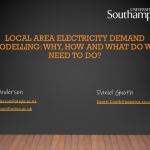
Dr Ben Anderson and Dr Daniel Gnoth (PowerCo) have co-convened a workshop on “Local Area Electricity Demand Modelling: Why, how and what do we need to do?” held at the University of Otago, New Zealand on 20th November 2019. The workshop, which attracted over 20 attendees from across the New Zealand electricity sector was a ...
SAVE project modelling visualisation 08-2019 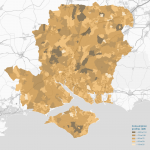
Mapped! Latest results from the SAVE spatial microsimulation model show how the level of residential electricity demand varies by time of day and by place across the Solent region.
SAVE project close event held at Westminster 07-2019 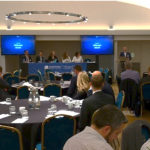
It’s been a busy month or so for the Solent Achieving Value from Efficiency (SAVE) project. On 6th June 2019, Dr Tom Rushby and Prof Patrick James from the University of Southampton team joined project partners at a special event to mark the close of the project. The event was held at Central Hall, Westminster. ...
SAVE project featured in special session at ICEC 2019 07-2019 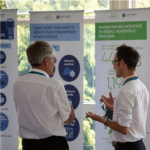
On July 10th, Dr Tom Rushby and Dr Ben Anderson were joined by other project partners to present the Solent Achieving Value from Efficiency (SAVE) project at a special parallel session of the 2019 International Conference for Energy and Cities. A number of key aspects of the SAVE project were described with presentations given on ...
SPATIALEC project features at ICEC 2019 07-2019 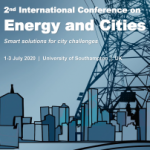
Dr Ben Anderson presented an update on his local area electricity demand modelling work carried out under the SPATIALEC MSCA Global Fellowship at the International Conference on Energy and Cities (ICEC) 2019 held at the University of Southampton. He discussed results from a preliminary model using NZ Census 2013 and GREEN Grid project data to ...
SPATIALEC results presented at the 7th World Congress of the International Microsimulation Association, 2019 07-2019 
Dr Ben Anderson presented an update on his local area electricity demand modelling work carried out under the SPATIALEC MSCA Global Fellowship at the 7th World Congress of the International Microsimulation Association held at the University of Galway. He discussed results from a preliminary model using NZ Census 2013 and GREEN Grid project data to ...
Insights into peak demand effects of heat pumps in NZ presented at BRANZ workshop 04-2019 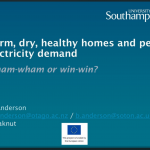
Dr Ben Anderson has presented insights from his SPATIALEC EU MSCA Global Fellowship as part of an invited presentation at a BRANZ-hosted workshop on designing a future NZ domestic Energy End-Use study held in Wellington on April 4th 2019. Ben discussed the contribution of hot water and heat pump use to peak demand in NZ ...
SPATIALEC update presented at RSA Australasia Conference 02-2019 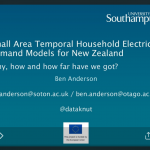
Dr Ben Anderson presented an update on his local area electricity demand modelling work carried out under the SPATIALEC MSCA Global Fellowship at the Regional Science Association Australasia Conference in Christchurch, NZ in February. He discussed results from a preliminary model using NZ Census 2013 and GREEN Grid project data to model small area lighting ...
SPATIALEC/SAVE research features at two NZ conferences 11-2018
Dr Ben Anderson presented two aspects of ongoing SERG work on electricity demand at two recent conferences in New Zealand as part of his SPATIALEC EU MSCA Global Fellowship. The first, Electrifying Heat: Patterns of electricity consumption in electrically heated households in the UK and New Zealand was presented at ICEERB 2018, the 8th International Conference ...
SPATIALEC/Energy Cultures work presented at IEA Technical Symposium 11-2018 
Dr Ben Anderson presented a summary of recent ‘Energy Cultures‘ work at the a Technical Symposium: IEA Energy In Buildings And Communities, in Wellington, New Zealand on 21st November. His talk, which formed part of his SPATIALEC EU MSCA Global Fellowship work explained how the energy cultures framework could be used to understand ‘irrational’ heating ...
SPATIALEC GF supports GREEN Grid project to release unique household electricity demand dataset for public use 09-2018 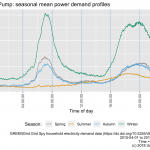
“How much electricity do heat pumps really use? When is hot water heated and are the lights kept on all day in winter?” These and other questions can now be answered thanks to the release of anonymised electricity power demand data from a sample of 45 New Zealand households. The households were recruited in 2014 as ...
The End of the World (Cup) 08-2018 
… for England. We didn’t plan the SAVE household sample recruitment and data collection period to over-lap with the 2018 World Cup but we had no end of fun when it did. We started out with some quick analysis of pick-ups (or not) of power demand during the game against Tunisia on June 18th before moving ...
SPATIALEC/SAVE work on neighbourhood electricity demand profiles presented at the EPECentre 06-2018 
SERG’s Dr Ben Anderson is continuing to make links with centres of expertise in New Zealand through his ongoing EU Global Fellowship. In this case he gave a summary of SAVE and SPATIALEC work at the University of Canterbury’s EPECentre, a world-class Power Industry research incubator that attracts academics and students from around the world ...
UK household power demand and #worldcup2018 06-2018 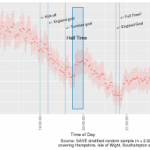
Author: Ben Anderson (b.anderson@soton.ac.uk, @dataknut) We recently posted a brief analysis of household power demand during the May 2018 Royal Wedding which showed a number of surges and dips associated with events in Windsor. In this post we switch to events in Russia – and specifically the first England game of World Cup 2018 (vs Tunisia). ...
SAVE: Data sources 05-2018 
The LCNF funded Solent Achieving Value from Efficiency (SAVE) project is collecting a range of data on household electricity demand. The data comprises electrical power demand, electrical energy consumption and a range of survey data on a large (n > 3,000) sample of households in the South East of England. The SAVE sample The SAVE sample is ...
Super Saturday and spikes in demand 05-2018 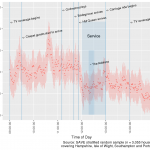
Author: Ben Anderson (b.anderson@soton.ac.uk, @dataknut) A while ago we posted a brief analysis of Christmas Day 2016 which showed that it was a most unusual Sunday. Although there was little evidence of positive ‘spikes‘ in household electricity demand due to synchronised behaviour, HM The Queen’s TV broadcast appeared to cause a distinct negative spike and there ...
SAVE: Solent Achieving Value from Efficiency 03-2018 
Investigators: Professor AbuBakr Bahaj, Dr Ben Anderson and Professor Patrick James. Researchers: Dr Tom Rushby, Dr Magesh Nagarajan, Dr Mikey Harper Contact: A.S.Bahaj@soton.ac.uk The Solent Achieving Value from Efficiency (SAVE) project was awarded £10 million under the Low Carbon Network (LCN) Fund and was carried out by a multidisciplinary consortium of academics, industry and consultants. The project, led ...
SAVE project features in NZ radio interview 03-2018 
SERG’s Dr Ben Anderson recently gave an Otago Energy Research Centre seminar on the SAVE project results to date. He was also invited to give an interview to the University of Otago’s radio station, RadioOne 91FM (“Aotearoa’s southernmost student radio station!”). Interview: Seminar abstract: “Whilst overall reduction of energy demand is receiving increasing policy attention in the United ...
IMPETUS domestic ‘Water Demand’ model results published 02-2018 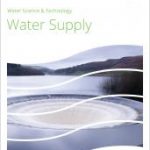
Full paper: Anderson, Ben, Manouseli, Despoina and Nagarajan, Magesh (2018) Estimating scenarios for domestic water demand under drought conditions in England and Wales Water Science & Technology: Water Supply (Open Access (CC BY 4.0): doi:10.2166/ws.2018.035) Abstract: This paper presents preliminary results from the development of IMPETUS model, a domestic water demand microsimulation model which was developed ...
Energy Demand & Supply in New Zealand: Early Impressions 12-2017 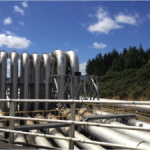
It isn’t hard to find similarities between the British Isles and New Zealand. The traditions derived from the British immigration to the islands (and the South Island in particular) emerge as a common language; as familiar sports at which, for the most part, the Kiwis give us a good thumping; a liking for real ale, ...
SPATIALEC Global Fellowship launches 12-2017 
SERG’s Dr Ben Anderson has just started the outgoing phase of his EU H2020 Marie Skłodowska-Curie scheme-funded SPATIALEC Global Fellowship. Based at the University of Otago’s Centre for Sustainability, Ben will initially be working on combining time use and electricity monitoring data from the New Zealand GREEN Grid project with New Zealand Census data to produce ...
SERG research core to SSEN parliamentary event 11-2017 
SERG’s Dr Ben Anderson presented the SAVE study design and trial period 1 preliminary analysis at Scottish and Southern Energy Network’s Using Energy Efficiency to Defer Network Reinforcement parliamentary event at the Houses of Parliament on November 20th, 2017. With an introduction from Alan Whitehead MP (Shadow Minister (Department for Business, Energy and Industrial Strategy) (Energy ...
IMPETUS domestic hot water demand model presented at BECC 2017 10-2017 
Dr Despina Manouseli presented a poster on the IMPETUS domestic hot water demand model at the annual Behavior Energy and Climate Conference in Sacramento, California in October 2017. The poster presented a novel, practices-based approach to hot water demand estimation ‘under normal conditions’ using microsimulation to forecast seasonal demand at the household level under various water/energy conservation scenarios. The models suggest that the installation of ...
IMPETUS 'Water Cultures' domestic water demand review published 10-2017 
Full paper: Manouseli, D., Anderson, B. & Nagarajan, M. (2017) Domestic Water Demand During Droughts in Temperate Climates: Synthesising Evidence for an Integrated Framework, Water Resource Management. (Open Access) Abstract: Extreme weather events and variations that alter drought and flood frequency add to these pressures and there is therefore a need to develop evidence-based drought scenarios models for ...
SERG Researcher Dr Despina Manouseli Presents at "Efficient Use and Management of Water" Conference 07-2017 
The 9th biennial Specialist Conference on “Efficient Use and Management of Water” is held every two years in a different location around the world, has been the flagship water efficiency conference for the International Water Association (IWA). Efficient2017 was an opportunity for water efficiency professionals from all over the world to meet each other, network, and ...
Early SAVE results feature at project open days 06-2017 
SERG’s Dr Tom Rushby gave a summary of early SAVE project results at two SAVE ‘Open Days’ on the 10th & 11th of May 2017. The events, which were lead by SSEN but hosted by the University, consisted of a series of short talks and facilitated discussions intended to help inform the project’s future direction. Tom presented ...
Clean Carbon Event Poster: Solent Achieving Value from Efficiency (SAVE) 05-2017 
Solent Achieving Value from Efficiency (SAVE) project poster presented to the ‘Clean Carbon‘ USRG by SERG’s Dr Thomas Rushby, 10th May 2017 References list: EA Technology. Future Load Growth from presentation titled ‘SAVE Project Customer & Network Model Meeting’. 17th February 2015 Newsham, Guy R., and Brent G. Bowker. ‘The Effect of Utility Time-Varying Pricing and Load ...
Early SAVE results feature at University Clean Carbon Event 05-2017 
SERG’s Dr Tom Rushby gave a summary of the SAVE project to members of the University’s ‘Clean Carbon‘ USRG on the 10th May 2017. The event, which featured a keynote from Prof. Jon Gibbins, Director of the UK Carbon Capture and Storage Research Centre (UKCCSRC) on the state of CCS in the UK, consisted of ...
IMPETUS modelling work to be presented at IMA & IWA 2017 conferences 05-2017
Research results from the NERC-funded IMPETUS project will be presented at two upcoming conferences: the 6th World Congress of the International Microsimulation Association (IMA 2017) at Collegio Carlo Alberto in Moncalieri, Italy in June 2017; the IWA EFFICIENT Conference in Bath, UK in July 2017. The IWA Efficient paper will focus on the first version of the IMPETUS consumer water demand ...
IMPETUS researcher provides input to DEFRA REA 04-2017 
SERG researcher Dr Despoina Manouseli was interviewed recently to provide input to DEFRA’s Rapid Evidence Assessment on “behaviour change approaches to promote household water efficiency”. Despoina gave interviewer Collingwood Environmental Planning an overview of her PhD research on household water efficiency interventions and also drew on her recent IMPETUS work in this area. In particular she highlighted the ...
A Most Unusual Sunday 01-2017 
Author: Ben Anderson (b.anderson@soton.ac.uk, @dataknut) There is often talk in the media about the ‘spikes’ in energy demand caused by breaks in television schedules – when everyone is supposed to jump up and put the kettle on (or whatever). Although these make for good media stories, the largest overall surges are probably to do with cooking ...
Preliminary IMPETUS domestic water demand model results presented at IMA Europe 2016 conference 09-2016 
Dr Ben Anderson and Dr Magesh Nagarajan have presented preliminary results from the IMPETUS project at the 2016 European meeting of the International Microsimulation Association. The paper described their approach to modeling domestic water demand in England using a synthetic 1000 household dataset and demonstrated the results of an Agent Based Model to project water demand ...
New Census2022 paper published in the Computers, Environment and Urban Systems 07-2016 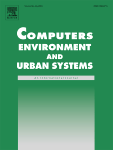
“Electricity consumption and household characteristics: Implications for census-taking in a smart metered future” briefly reviews the nature of current and future census taking in the UK before outlining the household characteristics that are to be found in the UK census and which are also known to influence electricity load profiles. The paper then uses the Irish CER ...
Census2022 research features at MRS seminar on the future of the UK census 03-2016 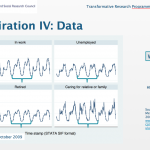
SERG’s Dr Ben Anderson recently gave a summary of the ESRC funded Census2022 project results as part of a Market Research Society symposium on “Can Big Data replace the Census? What does Big Data give us now?“. Speaking alongside representatives from CACI, Telefonica and the Office for National Statistics, Ben outlined the potential value of electricity smart ...
SERG research features at Royal Statistical Society Conference 09-2015 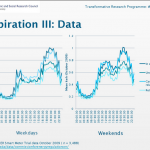
SERG’s Dr Ben Anderson gave two papers at the recent Royal Statistical Society International Conference 2015 held at the Univesity of Exeter: “What can DECC’s NEED data tell us about levels and change in domestic electricity consumption?” gave an overview of some recent analysis of DECC’s domestic energy consumption dataset drawing implications for the need to ...
#Census2022 paper on smart meter data for a smart census published 07-2015 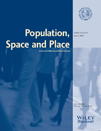
Newing, Andy, Anderson, Ben, Bahaj, A.S. and James, P.A.B. (2015) The role of digital trace data in supporting the collection of population statistics – the case for smart metered electricity consumption data. Population Space and Place, 1-13. (doi:10.1002/psp.1972). Debates over the future of the UK’s traditional decadal census have led ...
ONS publishes SERG report on smart meter data for a future census 07-2015 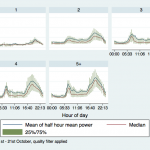
The ongoing evolution of the decennial UK Census presents social, policy and commercial researchers with both a challenge and an opportunity. The challenge is to transform ‘census-taking’ by finding robust alternative methods for creating small area socio-economic indicators over time. The opportunity is to transform the very nature of the socio-economic indicators themselves using new ...
SAVE project household recruitment begins 03-2015 
The Solent Achieving Value from Efficiency (SAVE) project has recently started to recruit a sample of households from across the Solent region (Hampshire, Isle of Wight, Southampton, Portsmouth) as part of its study of energy use. To ensure the study has a varied and representative selection of households and property types each address has been chosen ...
SERG ‘Customer Model Framework’ contribution to SAVE published 02-2015 
SERG’s first report for the LCNF funded SAVE project has been published. The report, “Report 2.1 – SAVE Customer Model Framework Specification“, lays out the applied research context for the SAVE Customer Modelling Framework (SCMF) and describes its key requirements. The report then outlines a microsimulation modelling approach than can meet these requirements and describes its conceptual foundations and method of ...
SAVE project report on 'Energy Efficiency and Behaviour Change' published 02-2015 
The SAVE project’s review of evidence on ‘Energy Efficiency and Behaviour Change‘ which has just been published shows that whilst the great variety of previous trial approaches and contexts often makes it difficult to compare results, common insights have emerged. These include: Customers cannot be engaged as one group – the way in which different people react to attempts to change their energy ...
Census2022 project: Four conference papers presented 09-2014
The Census2022 project recently gave a series of presentations of preliminary results at the following conferences and events: British Society for Population Studies Annual Conference: University of Winchester, 8-10 September 2014, (slides) Behave 2014 ‘Paradigm Shift: From Energy Efficiency to Energy Reduction through Social Change’, the third European conference on behaviour and energy efficiency, Saïd Business School ...
SERG wins new funding to model domestic water demand under drought scenarios 03-2014
SERG has secured funding to model domestic water demand under drought scenarios as part of the new NERC funded ‘IMPETUS‘ project. The project, to be lead by the University of Reading will start in June 2014 and run for 3 years. It is aiming to combine meteorological and hydrological models to produce drought ‘forecasts’ for ...
Funding for Low Carbon Network Fund (LCNF) project – ‘Solent Achieving Value from Efficiency’ 01-2014 
The Sustainable Energy Research Group (SERG) at the University of Southampton are the academic lead of a newly awarded second tier low carbon project funded by Ofgem and Scottish and Southern Energy Networks (SSEN) valued at a total of £10.3 million, starting in 2014. The consortium project, led by SSEN and entitled ‘Solent Achieving Value ...
"The role of commercial data in #Census2022" session @ RGS/IBG 2014 01-2014
The following session has been accepted for the RGS Annual Conference 2014 Session Title: The role of commercial data in #Census2022 Organisers: Dr Ben Anderson and Dr Andy Newing, Sustainable Energy Research Group, University of Southampton Session Chair: Keith Dugmore, Demographic Decisions Ltd. and Demographics User Group Session Sponsor: ESRC #Census2022 Transformative Research Project Abstract: Consumer data collected by commercial ...
Census 2022 project grabs attention at MRS meeting 11-2013 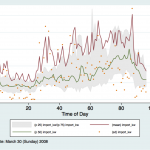
The new ESRC funded Census 2022 project has attracted attention from the Market Research Society’s Census and Geodemographic Group (CGG). Andy Newing gave an overview of the project’s aims and objectives as well as some preliminary data analysis at a meeting hosted by GFK NOP, 19th November 2013 at Ludgate House, London. Several members of ...
Census 2022: Transforming Small Area Socio-Economic Indicators through ‘Big Data’ 06-2013 
Census 2022: Transforming Small Area Socio-Economic Indicators through ‘Big Data’ is a project funded by the ESRC Transformative Research 2012/2013. Investigators: Dr Ben Anderson, Dr Patrick James & Prof. ‘Bakr Bahaj Contact: b.anderson@southampton.ac.uk The possible demise of the decennial UK Census presents social, policy and commercial researchers with both a challenge and an opportunity: The challenge is to transform ‘census-taking’ ...
